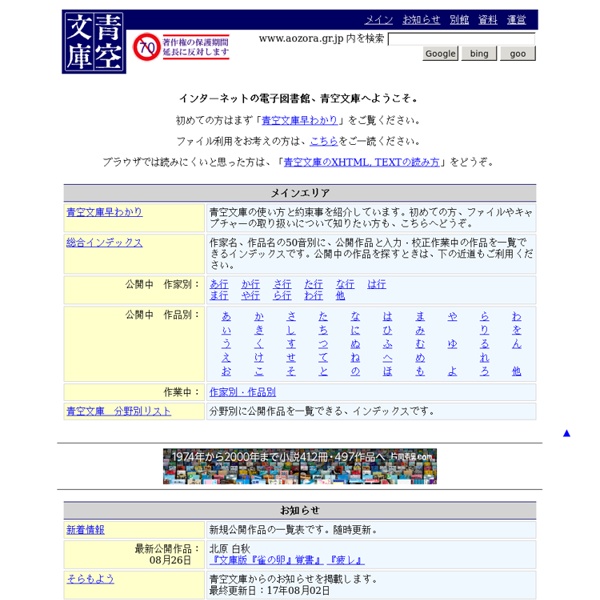青空文庫 Aozora Bunko
Book Club | チョコチョコ
elcome to the one and only official Chokochoko Book Club where you’ll find in depth reviews of Japanese books and all the things that should be in a book club…heeey…how did this Gravure mag get here?? Well, you might not know but I’m just addicted to buying books. What could possibly make you MORE happier than your mailman standing on your doorstep with a box of fresh books? Like this: Like Loading...
電子書籍・コミックはeBookJapan
新着マンガ4/22 30冊(17タイトル) 新着少女・女性コミック4/22 1冊(1タイトル) 新着ハーレクイン4/17 3冊(3タイトル) 新着ライトノベル4/18 32冊(30タイトル) 新着総合図書4/21 ウェブ マガジン 「KATANA」 eBookJapanオリジナル電子漫画誌 編集長より ド派手に決める! ショータイム列車に始まり、ヘリ、武装収集車、戦車に水陸両用車と、よくもまあ次から次へとぶっ壊してくれるものです。 Web Magazine KATANA バックナンバー
Related:
Related:



